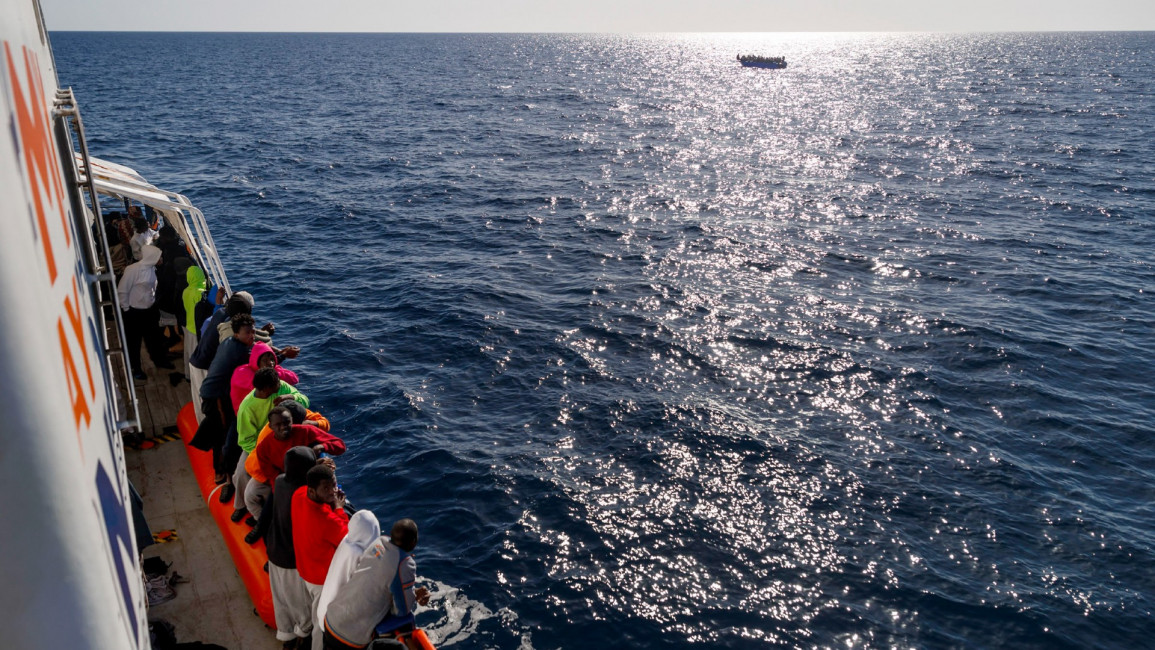UN warns 100 migrants that fled war-torn Libya risk drowning in Mediterranean
The arrival of summer and more favourable conditions at sea tends to lead to an increase of attempts to cross the Mediterranean, and the deteriorating situation in Libya is also prompting more migrants to take their chances at sea and reach Europe.
The International Organisation for Migration warned in a tweet that "around 95 migrants are still floating in the Central Mediterranean at risk of drowning, after attempting to flee Libya."
The UN agency did not provide any further details, but stressed that "states and shipmasters have a moral and legal obligation to respond to distress cases at sea."
More than 100,000 migrants tried to cross the Mediterranean last year with more than 1,200 dying in the attempt, according to the IOM.
Twitter Post
|
Tens of thousands of refugees and asylum seekers, as well as sub-Saharan African and Asian migrants hoping to make it to Europe, have found themselves stranded in Libya in horrifying conditions.
The overthrow and killing of veteran dictator Muammar Gaddafi in a NATO-backed uprising in 2011 sparked years of chaos that traffickers have exploited to turn Libya into a key route for illicit migration to Europe.
The situation of refugees and asylum seekers became more critical after eastern military strongman Khalifa Haftar launched an assault on Tripoli in 2019, and was further compounded by the coronavirus pandemic.
Migrant departures from Libya's coast increased by nearly 300 percent this year between January and the end of April, compared to the same period in 2019, according to the UN.
Follow us on Facebook, Twitter and Instagram to stay connected



